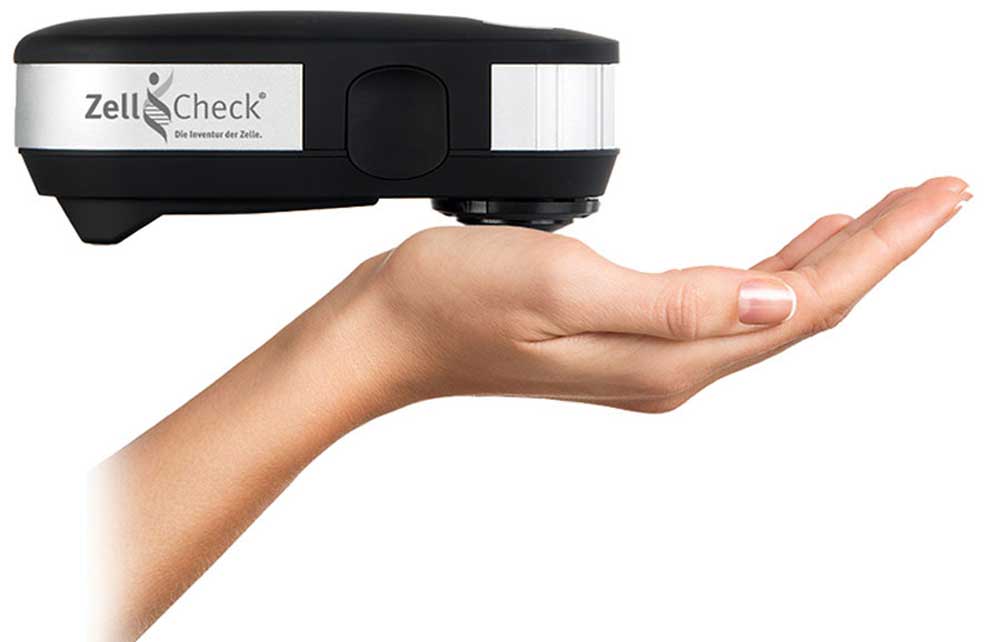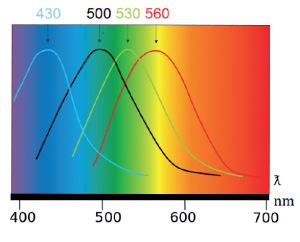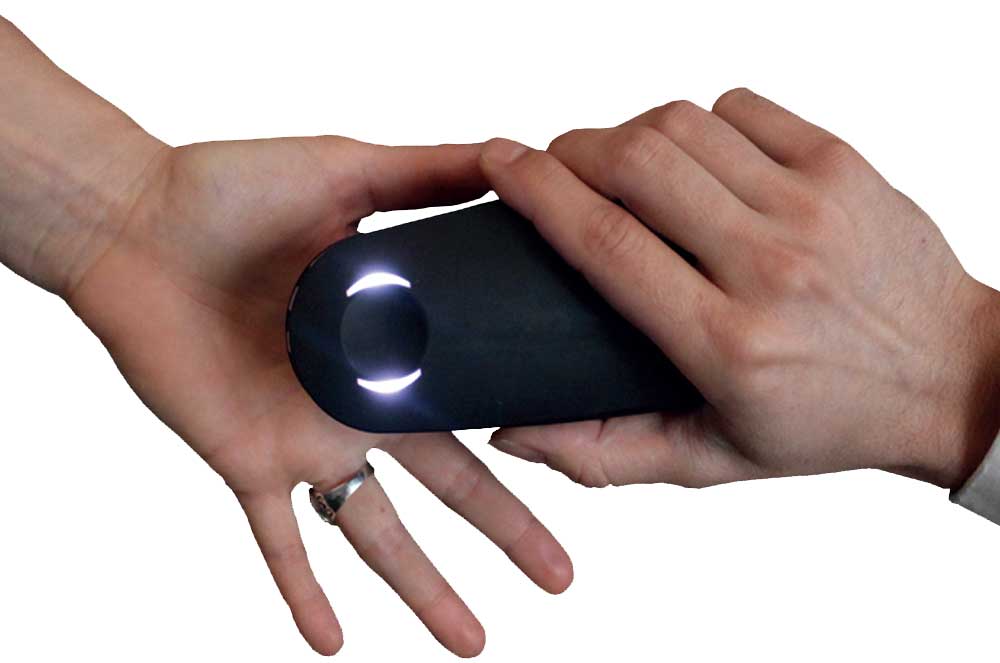The cell check | An innovation for your health
Make an inventory of your cells with the cell check!
Project Health's cell check is a real-time revolutionary method of measuring the bioavailability of trace elements, minerals, toxic heavy metals and oxidative stress.
The cell check is based on spectral photometry and allows for a stable, reproducible measurement of the most important minerals and toxic metals, directly at the cell level.
Therefore, cell check is a revolutionary tool compared to what is previously available on the market.

Detection and measurement of chemical elements in the cell
Although the method is not new (recognized as early as the 1930s) and has been awarded a Nobel Prize, it is a revolutionary method of quantitative analysis for the way we now use it.
The principle works as follows; Every chemical compound absorbs, emits or reflects light over a certain wavelength. The higher the concentration of the sample (of the pattern), the more light it absorbs according to the Lambert-berry law.
In practice, cell check can detect and measure the amount of different types of chemical elements in the cell. It uses emissions from characteristic frequencies of the respective tested chemicals (minerals, trace elements and heavy metals).

Modern measurement technology
The measurement is carried out using a tried-and-tested spectral photometer-a measuring device the size of a hand scanner. The measurement is very simple, absolutely harmless, painless and fast. The device can be used anywhere via an internet connection and installed software
Spectral photometry
Each chemical composition absorbs light in a different wavelength (see chart).
 Functionality of the cell check spectrometer
Functionality of the cell check spectrometer
Measurement on the palm of the hand
It has now been scientifically proven that trace elements, minerals and toxic heavy metals are stored in the cells and not in the blood. The cell-check spectrometer provides precise quantification of the intracellular memory of trace elements, minerals and oxidative stress. It thus replaces a blood analysis with regard to the determination of trace elements and minerals as well as the trichomineralogram (hair analysis), with which the heavy metals are otherwise analysed.
After reading the patient data, the spectral photometer is placed on four points of the palm of the hand, and this then emits light using a tungsten diode and a UV source, which then detects the corresponding parameters. The measurement includes 20 minerals and trace elements as well as 14 toxic heavy metals, the level between free radicals and antioxidants, and 14 medical parameters.
What does the cell check bring?
Oxydative Stress & Protection measurable for the first time
Exposure to heavy metals scientifically proven
The negative effects of heavy metals on the human organism are evidenced by numerous publications of global research institutes as well as by specialized doctors.
Heavy metals cause of serious diseases
Heavy metals remain in the cells (especially in the brain neurons, pancreas, liver, lungs and kidneys) for a lifetime, where they also cause damage. They are responsible for serious diseases such as Alzheimer's, Parkinson's, auto-immune and degenerative problems as well as hair loss, skin problems, severe fatigue and migraines. They are also the largest suppliers of free radicals, which in turn are responsible for more than 200 serious diseases and ailments.

Innovative measurement method
Revolutionary technology
Accurate detection of nutrients
The detection of a nutrient deficiency or exposure to heavy metals has so far been time-consuming, expensive and, in some cases, only indirect and thus inaccurate.
Based on spectral photometry
With the cell check spectrometer, a revolutionary technology based on spectral photometry, a stable, reproducible measurement of the most important minerals and toxic metals, directly at the cell level, is now possible.
Detecting and fixing interactions
In addition, well-researched interactions between minerals and metals can detect and remediate possible disturbances of physiological systems.
Functionality of the body
Optimal nutrient supply reduces health risks
Risks to disease development
All physiological processes of the body such as energy production, detoxification, immunity, cellular metabolism, hormonal regulation, etc. depend, among other things, on minerals, trace elements, vitamins, proteins and fatty acids. If these micronutrients are fed suboptimally, poorly absorbed or leached by increased oxidative stress, metal poisoning or other stresses, the risk of disease development can be increased.
Optimal nutrient supply supports health
Conversely, it can be assumed that an optimal supply of nutrients can contribute to the maintenance of health.
Detecting and fixing interactions
In addition, well-researched interactions between minerals and metals can detect and remediate possible disturbances of physiological systems.


Evaluation of cell check
Innovative and valuable measurement tool
Data security guaranteed at all times
The measured data is transferred to a central security server. The desired results are available online in less than a minute in electronic form.
Specification: 93/42 EEC | Class IIa.
The graphical analysis of the cell check vital substance check
Deficits or surpluses are shown in real time. The vital substance check is a very striking evaluation form of a cell check measurement. In semi-circle diagrams, the measured values (e.g. oxidative stress, acid-base balancing, total exposure of toxic metals, etc.) are shown in the traffic light system. After a measurement has been carried out, the test person can be very clearly understood in real time and visually, as possible deficits or surpluses can be shown.




